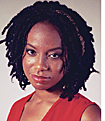By Jacqueline J. Holness
 As an INFP (Introversion Intuition Feeling Perceiving) according to the Myers-Briggs Type Indicator personality test, I am an introvert and much more attuned to my inner world versus the outer world. In simpler terms, I gain energy from being alone rather than coming alive when among people, unlike extraverted personalities. At an early age, I discovered that although I often prefer being alone, I can still interact with others through the worlds created in books.
As an INFP (Introversion Intuition Feeling Perceiving) according to the Myers-Briggs Type Indicator personality test, I am an introvert and much more attuned to my inner world versus the outer world. In simpler terms, I gain energy from being alone rather than coming alive when among people, unlike extraverted personalities. At an early age, I discovered that although I often prefer being alone, I can still interact with others through the worlds created in books.
When I first began to read, I chose Disney books and other children’s books my father read to me before tucking me in at night. In fact, one of my favorite childhood books is Paula’s Feeling Angry, which was written by Melanie Aldridge and published by Standard Publishing in 1976. (I still have my book!) The book is about a little black girl, Paula Jean, who found herself being resentful and jealous of Carl, her newborn baby brother. I had a new little brother too at the time, so I imagine my father read it to me to help me process my feelings.
From there, I ventured far and wide, reading the series of Anne of Green Gables, Little House on the Prairie, and Ludell. I read whatever attracted my attention, regardless of the authors. As I got older, I’ve expanded my reading range even more, devouring novels by black, white, Brazilian, Mexican, Japanese-American novelists, and beyond.
The Publishing Industry
However, I’ve recently discovered that many readers don’t have diverse reading tastes. Christian novelist Kim Cash Tate had five books published by Thomas Nelson, but they weren’t blockbusters. She wrote on her blog, “What I’ve been told the past five years is that the CBA [The Association for Christian Retail] audience is made up primarily of white women, and that it’s hard to sell stories with black characters” (kimcashtate.com).
Christian novelist Piper Huguley lamented that many black authors complain about their books being segregated in a certain section of bookstores. “They feel this separation limits their potential exposure to obtain a wider readership. I see their point. Still, what exactly allows this separation to continue in the Christian entertainment market when we all worship one God?” (blackchristianreads.com).
Apparently the experiences of these novelists are an example of a larger diversity problem in the publishing industry. Publishers Weekly writers Diane Patrick and Calvin Reid looked at the results of their publication’s most recent annual book publishing industry survey given to employees of publishing houses. Of the respondents, 89 percent of those who worked in the book industry were Caucasian, 3 percent were Asian, 3 percent were Hispanic, and 1 percent were African-American.
Lynn Neary interviewed minority authors about the lack of diversity in the publishing industry, how it has affected them, and what should be done to fix the problem. Writer Daniel José Older told Neary, “We need diverse agents, we need editors, we need diverse book buyers, we need diverse illustrators, and we need diverse executives and CEOs at the top, too” (npr.org).
Reader Choices
While average readers may not be able to speak directly to book publishing executives to request changes, we can reach them through the books we buy, read, and recommend. And many readers are doing just that. Sunili Govinnage discussed her decision to only read books by people of color for a year. “I feel as if my decision brought home just how white my reading world was” (The Guardian).
Irvin Weathersby Jr. introduced white classics to his black Baltimore, Maryland, high school students, although they initially complained. “What I needed to express was that reading authors of all races and genders increases one’s chances of actualizing his or her human potential” (The Atlantic).
Gender diversity is another point of interest. A 2014 Goodreads survey of 40,000 readers determined that women tend to read more books written by women and men tend to read more books written by men. Peter O’Dowd, assistant managing editor of Here & Now, discovered that his reading patterns confirm the survey’s results. Earlier this year O’Dowd pledged to “exclusively pick up books by women over the next few months.”
As this issue of The Lookout has been dedicated to books, I challenge all readers to expand our worlds by including authors of all races and genders on our reading lists.
Jacqueline J. Holness, a member of Central Christian Church in Atlanta, is a correspondent for Courthouse News Service, an online, national news service for attorneys. Read more on her website (afterthealtarcall.com).



Comments: no replies